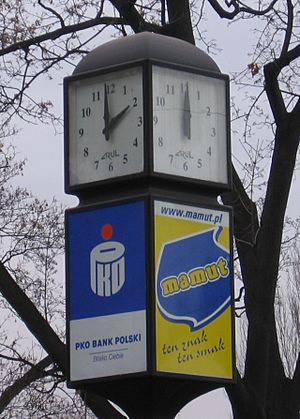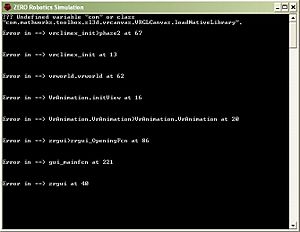Error facts for kids
An error is basically a mistake. But the word "error" can mean different things depending on where you use it. It's important to understand these differences, especially in subjects like math, computers, or science.
Contents
Errors in Math
When you make a mistake in arithmetic, it often shows you're thinking about it the wrong way. For example, if you put a decimal point in the wrong place, it means you haven't quite understood how decimals work.
A teacher can explain how to place decimal points correctly. Once you understand, you might not make that mistake again. This shows how errors can actually help you learn. By finding out what you did wrong, you can fix your understanding.
Many textbooks use this idea. They have questions at the end of chapters, often with answers in the back of the book. The goal is to help you find your mistakes and learn from them. This way of learning is sometimes called getting "knowledge of results".
Errors in Statistics
In statistics, an error is how much a small group (called a sample) is different from what you expect it to be. What you expect is based on the whole group (called the population) that the sample came from.
Here's a tricky point:
- The difference between a value in your sample and the average of the whole (but often unknown) population is called a statistical error.
- The difference between a value in your sample and the average of your observable sample is called a residual.
Errors in Computer Programs
The word 'error' is also used when a computer program isn't written correctly.
- A syntax error happens when the computer code doesn't make sense to the computer. It's like writing a sentence with bad grammar that the computer can't understand.
- A logic error is a mistake in the plan or steps (the algorithm) the program follows. This kind of error might make the program give wrong answers or behave in unexpected ways.
Sometimes, an error can be an exception. This means something unexpected happens while the program is running. For example, it's an error if a program tries to save more files onto a disk that is already full.
Good programmers try to write code that can handle these unexpected errors. They might give each error an error code and use something called exception handling. If errors aren't dealt with, they can cause an error avalanche. This means more and more errors pile up, and the program becomes very hard to control or predict.
Errors in Big Events
In very serious situations, like a nuclear accident, even small errors can have very harmful results. This is why being very careful and precise is so important in certain jobs.
Images for kids
See also
 In Spanish: Error para niños
In Spanish: Error para niños
 | John T. Biggers |
 | Thomas Blackshear |
 | Mark Bradford |
 | Beverly Buchanan |




